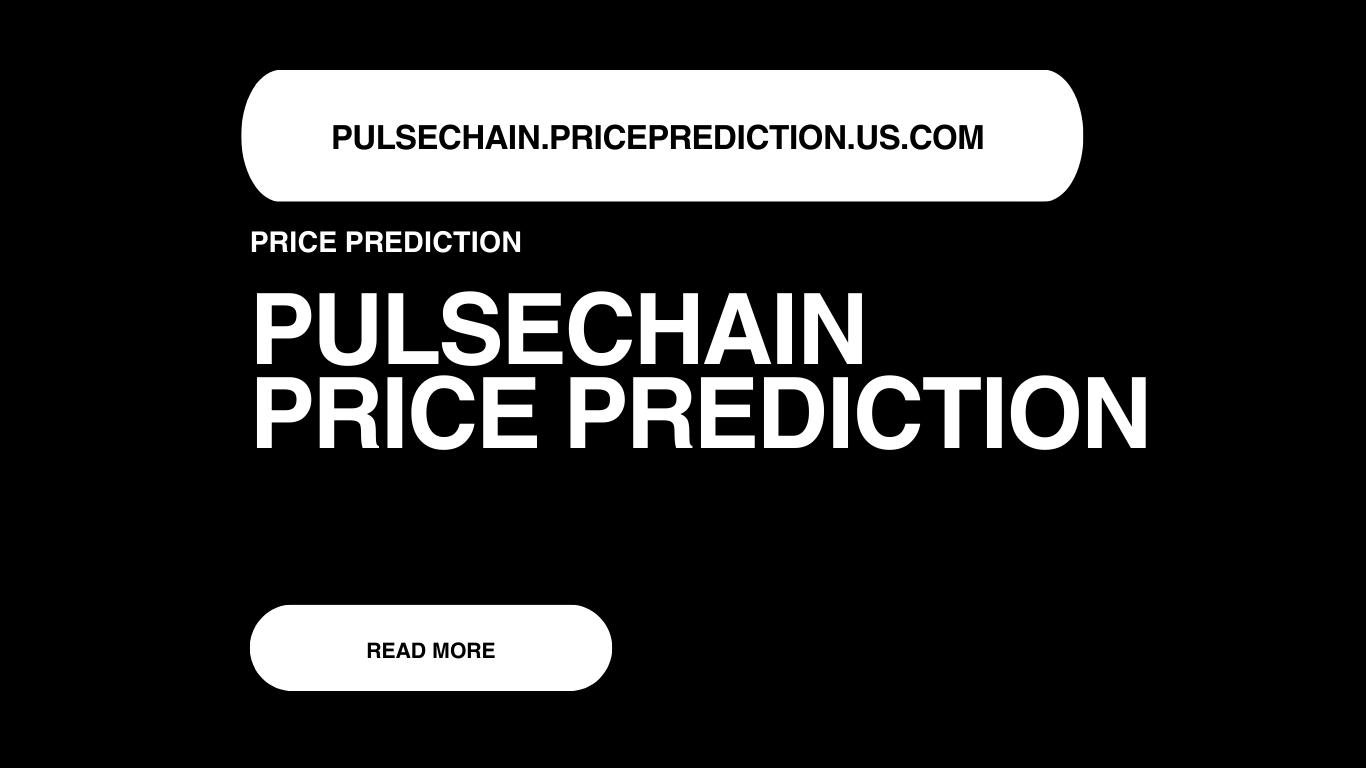Current Price
Check PulseChain price prediction for 2025, 2030, and 2040. Discover long-term PLS forecast based on technical analysis, tokenomics, roadmap, and ecosystem growth.

PulseChain (PLS) is a fast, low-fee, and energy-efficient layer-1 blockchain created by Richard Heart, the founder of HEX. Designed to be Ethereum's hard fork, PulseChain aims to improve scalability, reduce congestion, and offer cheaper transactions while preserving compatibility with Ethereum smart contracts and tools.
With growing adoption and a strong community, PulseChain has positioned itself as a next-gen blockchain platform with ambitious goals.
PLS is showing signs of consolidation after a volatile debut year. The price is above a strong support zone, with technical indicators like RSI at neutral levels. If volume increases and bullish momentum continues, PLS may challenge its previous highs soon.
A breakout past could trigger a rally toward the zone, which acted as resistance during previous spikes.
PulseChain is expected to perform well in 2025 as more dApps and users migrate from Ethereum. With increasing transaction volume and lower fees, PLS could reach $0.00028.
By 2026, PulseChain may expand its DeFi ecosystem and cross-chain capabilities. As adoption grows, the PLS token might climb to $0.00042.
More projects and developer tools could be launched on PulseChain, positioning it as a true Ethereum competitor. By 2027, PLS could trade around $0.00055.
As institutional interest in alternative L1 blockchains grows, PulseChain could benefit, with the PLS price potentially hitting $0.00072.
If PulseChain successfully integrates with major Web3 platforms and enhances security, it may trade around $0.00093 in 2029.
By 2030, PulseChain could establish itself as a top-tier smart contract platform, pushing the PLS token to $0.0012.
With mainstream enterprise use and global DeFi integrations, PLS may reach between $0.0024 and $0.0030, driven by consistent development and community growth.
If PulseChain continues to innovate and scale globally, PLS could be valued between $0.0040 and $0.0065 by 2040, depending on the market cycle and ecosystem utility.
PulseChain is a layer-1 blockchain offering faster, more energy-efficient transactions than Ethereum. It launched as a fork of Ethereum, copying the state and allowing ETH users to receive PLS on launch. It aims to improve scalability, reduce transaction costs, and offer a more environmentally friendly blockchain alternative.
PulseChain supports EVM-compatible smart contracts and hosts many DeFi, NFT, and utility projects.
What is PulseChain (PLS) used for?
PLS is used to pay transaction fees on the PulseChain network, stake for validator rewards, and power dApps built on the platform.
Is PulseChain a good investment?
PulseChain shows potential due to its scalability, active community, and compatibility with Ethereum. However, it remains a high-risk, high-reward opportunity.
Can PLS reach $0.01?
If adoption continues steadily and the ecosystem grows, PLS might reach $0.01 long-term, possibly by or beyond 2040.
Bullish Patterns:
Bearish Patterns:
Provide clear contact information, including phone number, email, and address.

Explore ZBCN price prediction from 2026 to 2040. Get insights into technical analysis, future trends, tokenomics, roadmap, and long-term value forecast for the ZBCN token.

ASTER price prediction explained in simple words for beginners. A clear year-by-year outlook from 2026 to 2040 for the ASTER coin.

Discover KULR stock price prediction from 2025 to 2040. Explore forecasts, technical analysis, roadmap, and future trends driving growth in battery safety and thermal management.